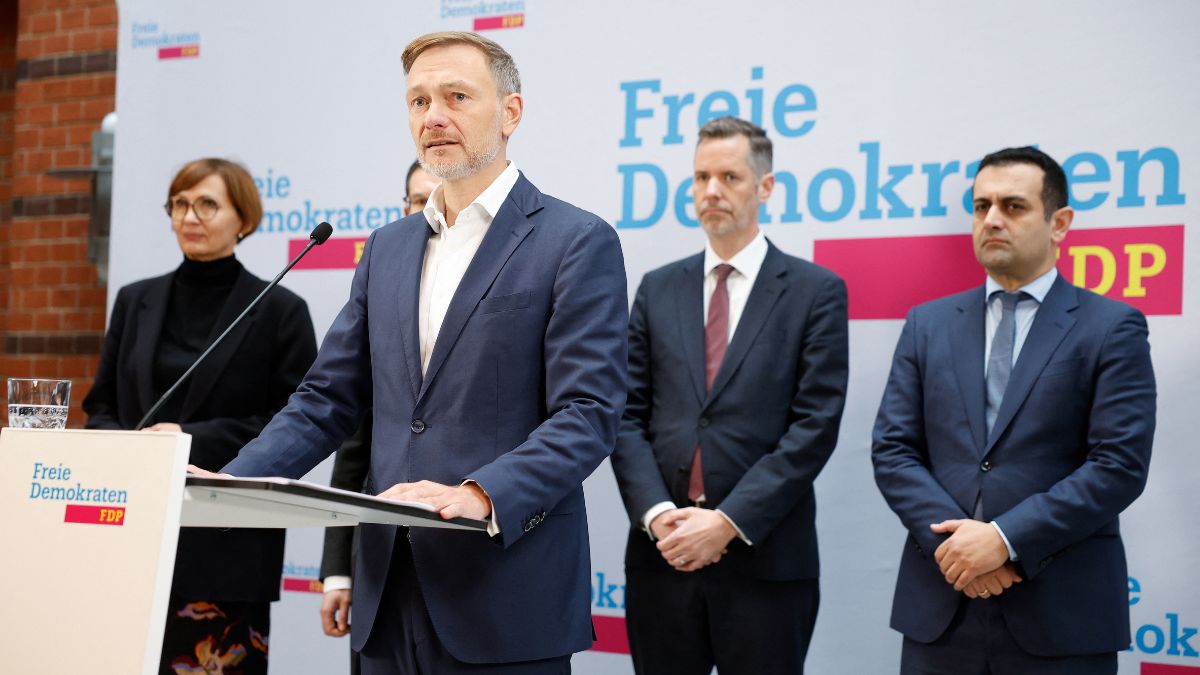The Opposition in Germany on Thursday called for a confidence vote next week rather than Chancellor Olaf Scholz’s offer to hold it next year.
Speaking after a meeting of his parliamentary group, Christian Democratic Union of Germany (CDU) chairman Friedrich Merz said Scholz’s three-party coalition with the Greens and the Free Democrats (FDP) had “failed”.
Months of infighting culminated in the breakup of Scholz’s three-way faction on Wednesday with the chancellor firing his finance minister Christian Lindner from the FDP.
The shock move leaves the chancellor’s SPD and the Greens ruling in a precarious minority government at a time when Germany is facing multiple domestic and international crises.
Initially, Scholz said that a no-confidence vote should be held on January 15 so lawmakers have enough time to decide whether to call early elections by March. But Merz is not on board with this plan as he believes an early trust vote could pave the way to elections in January.
“The decision taken last night… is the end of the coalition government and thus the end of this legislative period,” he said.
The political turmoil adds to the troubles Germany is already facing both at home and outside. Economic woes, the conflicts in Ukraine and the Middle East, and the looming return of Donald Trump to the White House, all are reasons for concern for the German leadership.
Impact Shorts
More ShortsScholz has already tapped Joerg Kukies, a member of his SPD and a close ally, to be his new finance minister, government sources told AFP on Thursday.
FDP Transport Minister Volker Wissing meanwhile said he would leave the party and stay in government.
“I want to stay true to myself,” Wissing said, explaining why he was not joining other FDP cabinet ministers who have quit Scholz’s ruling coalition.
With inputs from AFP
)